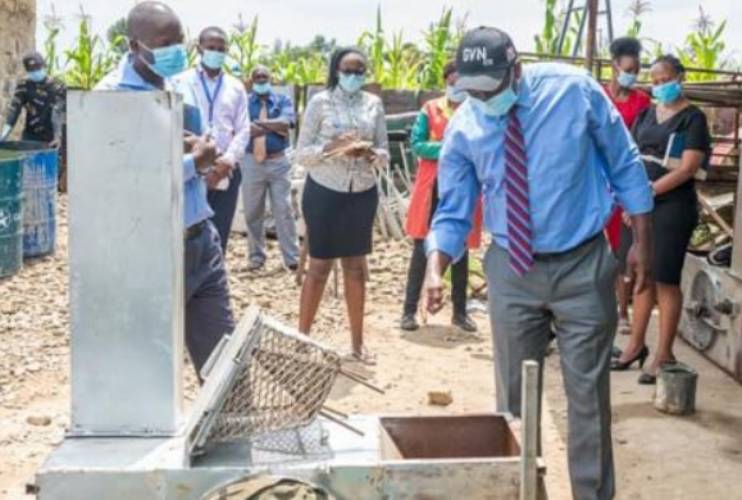×
The Standard e-Paper
Kenya’s Boldest Voice

Laikipia County officials led by Governor Ndiritu Muriithi during a tour of the innovation hub (PHOTO: Boniface Gikandi)
A unique innovation that enables farmers to reduce post-harvest losses has put a little-known village in Laikipia County on the continental map.